
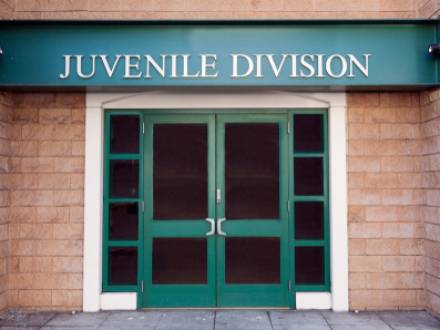 As a parent, it can be devastating to find out that your child has been accused of a crime. The outcome of juvenile court proceedings can have a serious impact on your child’s future. In some cases, the court will even go so far as to prosecute a juvenile as an adult. If you need help navigating these proceedings, reach out to a Wheaton, IL juvenile defense lawyer today.
As a parent, it can be devastating to find out that your child has been accused of a crime. The outcome of juvenile court proceedings can have a serious impact on your child’s future. In some cases, the court will even go so far as to prosecute a juvenile as an adult. If you need help navigating these proceedings, reach out to a Wheaton, IL juvenile defense lawyer today.
At Davi Law Group, LLC, we can provide you and your child with clear guidance. Attorney Dion Davi is a solo practitioner, so you can rest assured that you will receive a well-thought-out, personalized defense for your case.
When a minor is taken into police custody in Illinois, the process looks different from an adult arrest. Officers are required to treat juveniles differently and with added care. In many cases, the minor is taken to a police station for what is called a station adjustment. This is an informal process meant to resolve lower-level offenses without filing a formal court case.
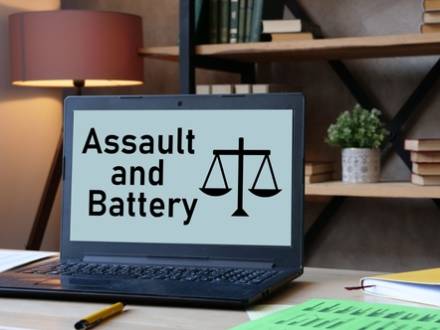 Battery charges in Illinois can range from relatively minor offenses to felonies with severe penalties. The specific charge you face can mean the difference between probation and years in prison. If you are accused of battery, you need to understand how Illinois law defines these crimes and why the details of the case matter.
Battery charges in Illinois can range from relatively minor offenses to felonies with severe penalties. The specific charge you face can mean the difference between probation and years in prison. If you are accused of battery, you need to understand how Illinois law defines these crimes and why the details of the case matter.
Simple battery and aggravated battery are two distinct categories of battery under Illinois law. Prosecutors decide which charge applies based on specific facts. To ensure you understand the charges against you and the possible defenses that apply to your case, speak with a Wheaton, IL battery defense lawyer as soon as possible.
Illinois law defines battery broadly, focusing on more than injuries. Under 720 ILCS 5/12-3, a person commits battery when they knowingly cause bodily harm to another person without a legal reason to justify it. Battery can also occur when someone knowingly makes physical contact that is insulting or provoking. This means an injury is not always required. Unwanted contact that is interpreted as insulting or provoking may still qualify.
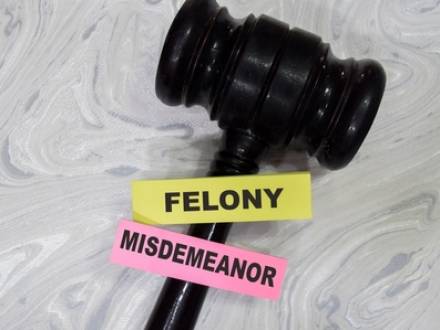 When you are charged with a misdemeanor, you may be tempted to handle your case on your own. While the possible penalties are generally not as serious as a felony, the stakes are still high. In reality, a misdemeanor in Illinois can affect your job, housing, reputation, and even your future opportunities. The court process also moves fast. If you do not understand what is happening, you might make choices that could harm you later. A DuPage County, IL criminal defense lawyer can help you better understand the allegations and build a defense.
When you are charged with a misdemeanor, you may be tempted to handle your case on your own. While the possible penalties are generally not as serious as a felony, the stakes are still high. In reality, a misdemeanor in Illinois can affect your job, housing, reputation, and even your future opportunities. The court process also moves fast. If you do not understand what is happening, you might make choices that could harm you later. A DuPage County, IL criminal defense lawyer can help you better understand the allegations and build a defense.
Illinois divides criminal offenses into felonies and misdemeanors. Felonies are more serious, but misdemeanors can still bring harsh penalties. Under 720 ILCS 5/2-11, a misdemeanor is any offense that carries a possible jail sentence of less than one year. Illinois separates misdemeanors into three classes:
 Forgetting to pay can happen to anyone. Maybe you were distracted by your phone or rushing to get home. Even though it was an honest mistake, store employees or police may see it differently. In Illinois, even small misunderstandings can sometimes lead to criminal charges. You could be accused of theft even if you did not mean to steal. If you are facing this situation, a Wheaton, IL theft defense attorney at Davi Law Group, LLC can help you fight the charges.
Forgetting to pay can happen to anyone. Maybe you were distracted by your phone or rushing to get home. Even though it was an honest mistake, store employees or police may see it differently. In Illinois, even small misunderstandings can sometimes lead to criminal charges. You could be accused of theft even if you did not mean to steal. If you are facing this situation, a Wheaton, IL theft defense attorney at Davi Law Group, LLC can help you fight the charges.
Most cases of accidental nonpayment start with simple mistakes. They may seem harmless, but stores often treat them seriously. Common examples include:
Leaving a self-checkout station without scanning one or two items
Walking out of a store with something still in a stroller, basket, or pocket
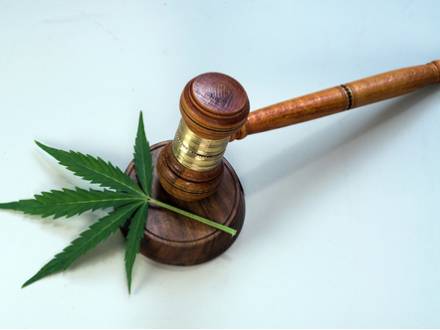 Marijuana is legal for adults in Illinois, but the rules are very different for anyone under 21. Minors can still face serious consequences if they are caught with cannabis. When teens are arrested on marijuana-related drug charges, they are not sent to adult jail. Instead, their cases are handled through the juvenile justice system, which focuses more on rehabilitation than punishment. If your child is facing drug charges, a DuPage County, IL drug crimes defense lawyer can explain the possible penalties and build a defense to protect your child’s future.
Marijuana is legal for adults in Illinois, but the rules are very different for anyone under 21. Minors can still face serious consequences if they are caught with cannabis. When teens are arrested on marijuana-related drug charges, they are not sent to adult jail. Instead, their cases are handled through the juvenile justice system, which focuses more on rehabilitation than punishment. If your child is facing drug charges, a DuPage County, IL drug crimes defense lawyer can explain the possible penalties and build a defense to protect your child’s future.
Illinois legalized recreational marijuana for adults age 21 and older in 2020 under the Cannabis Regulation and Tax Act, 410 ILCS 705. Adults can legally buy and possess limited amounts of cannabis. But this law does not apply to minors. For anyone under 21, possession, use, or purchase of cannabis remains illegal.
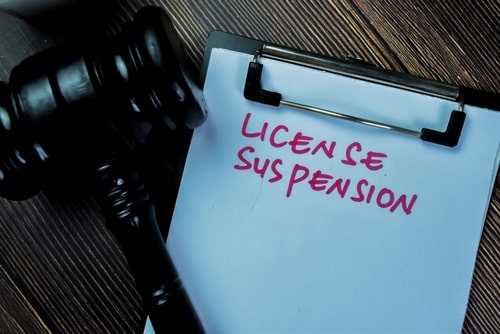 If you have been arrested for a DUI in Illinois, one of the consequences may be the suspension or revocation of your driver’s license. However, Illinois law offers a potential lifeline in the form of a hardship license, allowing you limited driving privileges under specific conditions. A Wheaton, IL DUI defense attorney can help guide you through the requirements and application for a hardship license. The process may seem overwhelming, but with the right knowledge and legal support, you can regain some driving privileges.
If you have been arrested for a DUI in Illinois, one of the consequences may be the suspension or revocation of your driver’s license. However, Illinois law offers a potential lifeline in the form of a hardship license, allowing you limited driving privileges under specific conditions. A Wheaton, IL DUI defense attorney can help guide you through the requirements and application for a hardship license. The process may seem overwhelming, but with the right knowledge and legal support, you can regain some driving privileges.
A hardship license, also known as a restricted driving permit (RDP), is a limited driver’s license issued to individuals whose driving privileges have been suspended or revoked due to a DUI conviction. Unlike a full driver’s license, an RDP only allows you to drive for specific reasons. Part of the eligibility process is proving that you need the license for things like getting to work or school.
 Shoplifting may seem like a minor offense, but under Illinois law, it can carry serious penalties, including jail time. Whether you have been accused of taking a low-cost item or were involved in a more significant incident, you could face criminal charges with lasting consequences. A Wheaton, IL shoplifting defense attorney can assess your case and help you build your defense strategy.
Shoplifting may seem like a minor offense, but under Illinois law, it can carry serious penalties, including jail time. Whether you have been accused of taking a low-cost item or were involved in a more significant incident, you could face criminal charges with lasting consequences. A Wheaton, IL shoplifting defense attorney can assess your case and help you build your defense strategy.
In Illinois, shoplifting is legally defined as "retail theft." This includes more than just taking merchandise without paying. According to 720 ILCS 5/16-25, retail theft occurs if you knowingly take or alter property from a retail store with the intention of not paying the full price. The law also covers other forms of theft, such as switching price tags, removing theft detection devices, or using tools to facilitate theft.
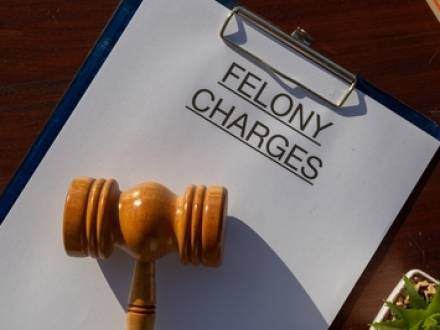 Most charges for driving under the influence (DUI) are misdemeanors, but any element that classifies it as a felony turns it into an aggravated DUI charge. Under Illinois law, an aggravated DUI can be charged as anything from a Class 4 felony up to the most serious charge, a Class X felony. If you have questions about the charges you face, a Wheaton, IL DUI defense attorney can help.
Most charges for driving under the influence (DUI) are misdemeanors, but any element that classifies it as a felony turns it into an aggravated DUI charge. Under Illinois law, an aggravated DUI can be charged as anything from a Class 4 felony up to the most serious charge, a Class X felony. If you have questions about the charges you face, a Wheaton, IL DUI defense attorney can help.
In Illinois, a DUI becomes a Class 4 felony under specific circumstances, elevating it from a misdemeanor to a serious criminal offense. Although a Class 4 felony is the least serious felony classification, it can still carry harsh penalties. A conviction can result in up to three years in prison and a substantial fine, according to Section 4.5-45 of 730 ILCS 5/5. For example, a Class 4 felony DUI may result from a drunk driving car accident involving an injured child under 16 or a DUI while driving a school bus with a child on board. If you were driving under the influence when an accident occurred and someone suffered a serious injury, disfigurement, or permanent disability, you could face an aggravated DUI charge.
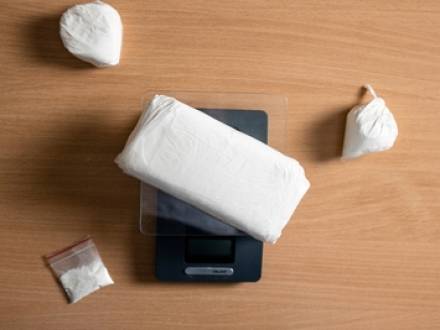 If you are facing drug paraphernalia charges in Illinois, understanding the laws that apply, including what classifies as drug paraphernalia, ensures you approach your case well-informed. Not everything found near drugs is automatically illegal, but certain items, especially those linked to drug use, can trigger serious criminal charges. A Wheaton, IL drug paraphernalia defense attorney can help you navigate these laws and understand how to challenge the charges.
If you are facing drug paraphernalia charges in Illinois, understanding the laws that apply, including what classifies as drug paraphernalia, ensures you approach your case well-informed. Not everything found near drugs is automatically illegal, but certain items, especially those linked to drug use, can trigger serious criminal charges. A Wheaton, IL drug paraphernalia defense attorney can help you navigate these laws and understand how to challenge the charges.
According to the Illinois Drug Paraphernalia Control Act, 720 ILCS 600/1, the term "drug paraphernalia" covers a broad umbrella of equipment, products, or materials that are used or intended for use in connection with illegal drug activity. This can include anything from devices used to ingest controlled substances to tools associated with their manufacture, preparation, or packaging. The law covers items, such as pipes, bongs, and syringes, that are commonly linked to drug use, and it extends to objects used to produce or distribute drugs. Whether something qualifies as paraphernalia often depends on how it is used or how it was found. A seemingly ordinary item could be characterized as illegal drug paraphernalia just because it is tied to drug-related behavior.
 Illinois courts take domestic violence charges very seriously, and typically, battery charges related to domestic violence involve a victim and an abuser. However, cases where both parties are physically and emotionally violent are more complex. If you were charged with domestic battery for fighting with someone, talk to an experienced Wheaton, IL domestic violence defense attorney to find out how you can challenge the allegations and tell your side of the story.
Illinois courts take domestic violence charges very seriously, and typically, battery charges related to domestic violence involve a victim and an abuser. However, cases where both parties are physically and emotionally violent are more complex. If you were charged with domestic battery for fighting with someone, talk to an experienced Wheaton, IL domestic violence defense attorney to find out how you can challenge the allegations and tell your side of the story.
When two people in a domestic relationship are abusive to one another, "mutual abuse" applies. Often, each person involved will accuse the other person of being abusive, and law enforcement investigating a domestic violence call may find it difficult to determine who is the main aggressor. Typically, they will identify someone and arrest that person. However, if more information comes to light, the other party could be arrested and charged with domestic battery as well.
 A lawyer’s time and advice are his stock and trade.
A lawyer’s time and advice are his stock and trade.